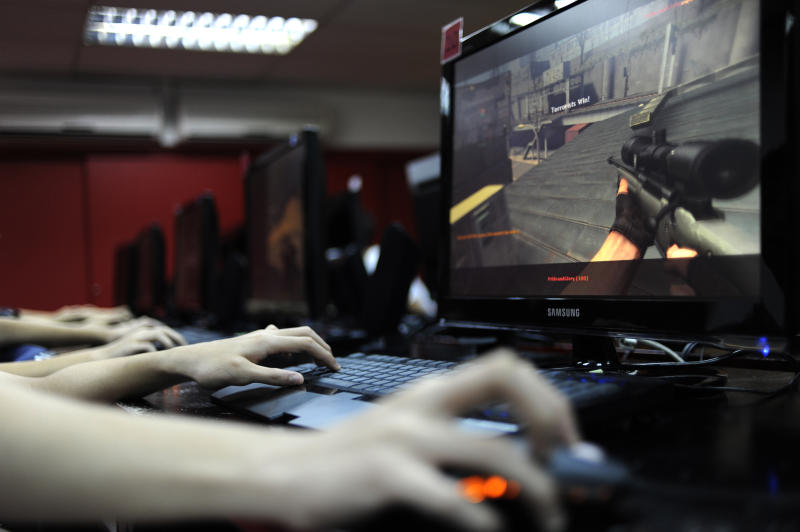Programme to help young people with gaming addiction launched
Sign up now: Get ST's newsletters delivered to your inbox

Called DigitalMindset, the programme is targeted at young people between 12 and 21 whose addictive behaviour has taken a toll on their mental health and daily lives.
PHOTO: ST FILE
SINGAPORE - In speaking to parents who tried to stave off their children's gaming addiction by confiscating their devices, school counsellor Gymy Lim made a startling discovery.
Some of the children had attacked their parents in retaliation.
"There were cases of students who turned violent and pinned their parents to the floor when their parents tried to take away their devices. That's when we thought involving Touch would help these families a lot," said Mr Lim, 35, a school counsellor with Jurong West Secondary.
Touch Community Services, in collaboration with Mindset, the charity arm of conglomerate Jardine Matheson Holdings, on Tuesday (Aug 27) officially launched an early intervention community programme designed to help parents and schools manage excessive gaming and device usage among young people.
Called DigitalMindset, it is targeted at those aged between 12 and 21 whose addictive behaviour has taken a toll on their mental health and daily lives.
The initiative involves individual counselling and group therapy sessions.
Touch said it saw 90 cases related to excessive gaming and device use last year, nearly a threefold increase from 2015.
The DigitalMindset team assesses young people's behaviour and device usage using a questionnaire and an interview before deciding if intervention is needed.
The team deems gaming or device usage excessive if a youth's well-being and primary responsibilities are significantly affected, or when academic results are suffering and he might have started playing truant.
The first DigitalMindset session kicked off in the beginning of August.
Around 20 youths, most in secondary school, have been enrolled by their parents or schools in the nine-month programme.
Touch plans to run the programme annually for up to 80 young people.
Touch Youth Intervention senior counsellor and DigitalMindset lead Shawn Soh said the programme's goal is not to stop young people from gaming altogether, but to help them cope better with the demands of real life and manage their emotions in a healthy manner.
He gave the example of a youth who might believe that sleeping three hours a day in order to game more is a sustainable routine, even if his grades and interpersonal relationships are suffering.
Through fortnightly one-on-one 45-minute counselling sessions, DigitalMindset's team of 17 counsellors help such young people become aware of the impact of their actions.
"Youths today are different... and it's inevitable that they have to touch their devices for some time every day," said Mr Soh, 30, who has been counselling for three years.
"What we do is help them realise the consequences their gaming habits have on their lives and the people around them, and then teach them coping strategies."
He added that young people who end up gaming excessively mainly do so for three reasons: for a sense of achievement, for immersion and for social interaction.
The programme thus tries to provide an alternative outlet for these impulses through monthly group therapy sessions, where the young people take part in activities such as dragon-boating or laser tag.
The counselling team also gives recommendations to schools on how they can support the young people.
DigitalMindset also holds family counselling sessions to educate parents on parenting styles and appropriate ways to manage their children who can get agitated when access to devices is cut off.
A team of 40 Jardine employee volunteers also serve as mentors to the young people.
Mr Lim, the school counsellor, said absenteeism rates can be a clue to a gaming problem.
"We often find out about the problem through students being late for or skipping school and when we do home visits we can see the strained relationships between students and parents," said Mr Lim during a sharing session at the launch event at Gateway Theatre in Bukit Merah.
Concerns over gaming addiction have been building recently.
It was officially added to the World Health Organisation's International Classification of Diseases in May, with the list to come into effect in 2022.
Parents and schools who wish to refer their children or students for the programme can call Touch's hotline on 1800-377-2252 , although there is a current wait list of one month as the counselling team evaluates the overwhelming number of referrals received.


